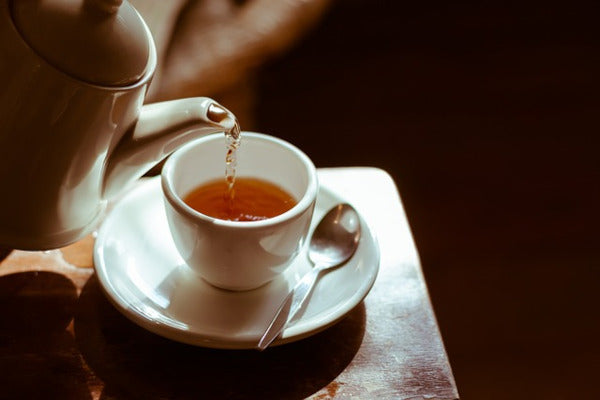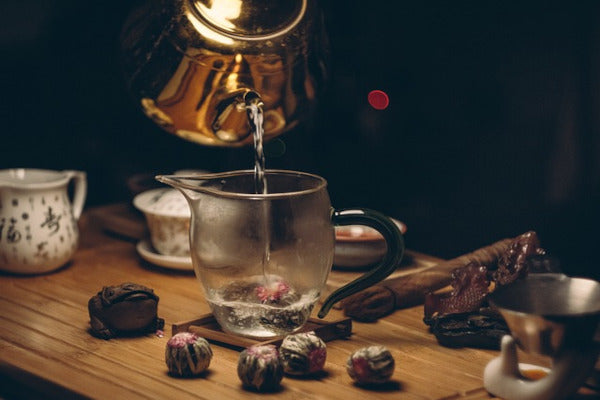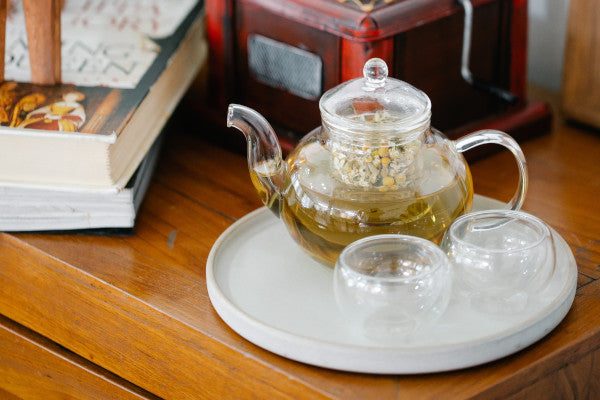Nettle (Urtica dioica) has been a part of herbal medicine since ancient times. The ancient Egyptians used nettles to treat arthritis and back pain, and Roman troops rubbed them to keep warm.
Its scientific name, Urtica dioica, comes from the Latin word "uro," meaning "to sting," as the plant's leaves can cause a temporary itching sensation when touched. The leaves have hair-like structures that cause burning, as well as itching, redness, and swelling.
However, if nettles are processed into a dietary supplement, dried, frozen, or cooked, they can be safely consumed. Research has linked nettles to several potential health benefits.

Here are 6 proven benefits of nettles.
- contains many nutrients
Nettle leaves and roots contain many nutrients, including:
Vitamins : Vitamins A, C and K and several B vitamins.
Minerals : calcium, iron, magnesium, phosphorus, potassium and sodium.
Fats : linoleic acid, linoleic acid, linolenic acid, palmitic acid, stearic acid and oleic acid
Amino acids : All essential amino acids
Polyphenols: Kaempferol, Quercetin, caffeic acid, coumarins and other flavonoids
Pigments : Beta-carotene, lutein, luteoxanthin and other carotenoids.
In addition, many of these nutrients act as antioxidants in the body.
Antioxidants are molecules that help protect cells from free radical damage. Free radical damage is linked to the aging process, as well as cancer and other harmful diseases.
Research shows that nettle extract can increase antioxidant levels in the blood.
At Tetique, we're committed to offering our customers the highest quality products, and we're confident your restaurant will be no exception. So, if you're looking for a way to differentiate yourself from the competition and offer a unique tea and infusion experience to your customers, don't hesitate to contact us for more information about our bulk products !

Nettles provide a variety of vitamins, minerals, fatty acids and amino acids, polyphenols and pigments, many of which also act as antioxidants in the body.
They act as antioxidants in the body.
- It can reduce inflammation, which is the body's way of healing itself and fighting infections.
However, chronic inflammation can cause considerable damage.
Nettle contains several compounds that can reduce inflammation.
In animal and in vitro studies, nettle has reduced levels of several inflammatory hormones by suppressing their production.
In human studies, applying nettle cream or consuming nettle products has been shown to relieve inflammatory conditions such as arthritis.
In a study involving 27 people, applying nettle cream to areas affected by arthritis produced significant pain relief compared to taking a placebo.
In another study, taking a dietary supplement containing nettle extract led to a significant reduction in arthritis pain. Participants also reported being able to reduce their dose of anti-inflammatory painkillers thanks to this capsule.
However, the research results are not sufficient to recommend nettle as an anti-inflammatory. Further human studies are needed.
Benefits of nettle tea for the prostate
Nettle may help suppress inflammation, which in turn may help inflammation, including arthritis, but more research is needed.
- can treat the symptoms of an enlarged prostate
Up to 50% of men aged 51 and older have an enlarged prostate.
An enlarged prostate is often referred to as benign prostatic hyperplasia (BPH). Scientists don't know exactly what causes BPH, but it can cause significant discomfort when urinating.
Interestingly, some studies show that nettle can help treat BPH.
Animal studies show that this powerful plant can prevent the conversion of testosterone into dihydrotestosterone, a stronger form of testosterone.
Preventing this conversion can help reduce the size of the prostate.
Studies in people with BPH show that nettle extracts can relieve short- and long-term urinary problems without side effects.
However, the effectiveness of nettles compared to traditional treatments is unclear.
Benefits of green nettle tea
Nettle may help reduce the size of the prostate gland and reduce the symptoms of an enlarged prostate in men with BPH.
- It can treat hay fever
Hay fever is an allergy in which the mucous membranes of the nose become inflamed.
Nettle is considered a promising natural remedy for hay fever.
In vitro studies have shown that nettle extracts can suppress the inflammation that can cause seasonal allergies.
This includes blocking histamine receptors and preventing immune cells from releasing chemicals that cause allergy symptoms.
However, human studies show that nettle is equal to or only slightly better than placebo in treating hay fever.
Nettles may help relieve hay fever symptoms. However, the results of some studies suggest this is not the case.
It's not much more effective than a placebo. More research is needed on the effects of nettles.
- It can reduce blood pressure
Approximately one in three American adults has high blood pressure.
High blood pressure is a serious health problem because it increases the risk of heart disease and stroke, which are among the leading causes of death worldwide.
Nettles have been traditionally used to treat high blood pressure.
Animal and in vitro studies show that it may help lower blood pressure in several ways.
First, it can stimulate the production of nitric oxide, which acts as a vasodilator. Vasodilators relax the muscles in blood vessels and promote their dilation.
Nettle also contains compounds that can act as calcium channel blockers, relaxing the heart by reducing the force of contraction.
In animal studies, nettle has been shown to reduce blood pressure and strengthen the heart's antioxidant defenses.
However, the effect of nettles on blood pressure in humans is still unclear. Further human research is needed before recommendations can be made.
Benefits and contraindications of nettle tea
Nettles may help lower blood pressure by relaxing blood vessels and reducing the force of heart contractions. However, further human studies are needed to confirm these effects.
- may help control blood sugar
Studies in humans and animals have linked nettle to lower blood sugar levels.
In fact, this plant contains compounds that can mimic the action of insulin (31Trusted Source).
In a three-month study involving 46 people, taking 500 mg of nettle extract three times a day significantly reduced blood glucose levels compared to a placebo (30Trusted Source).
Despite promising results, there are still very few human studies on nettle and blood sugar control. More research is needed.
Nettles may help reduce blood glucose levels, but more human research is needed to make recommendations.






